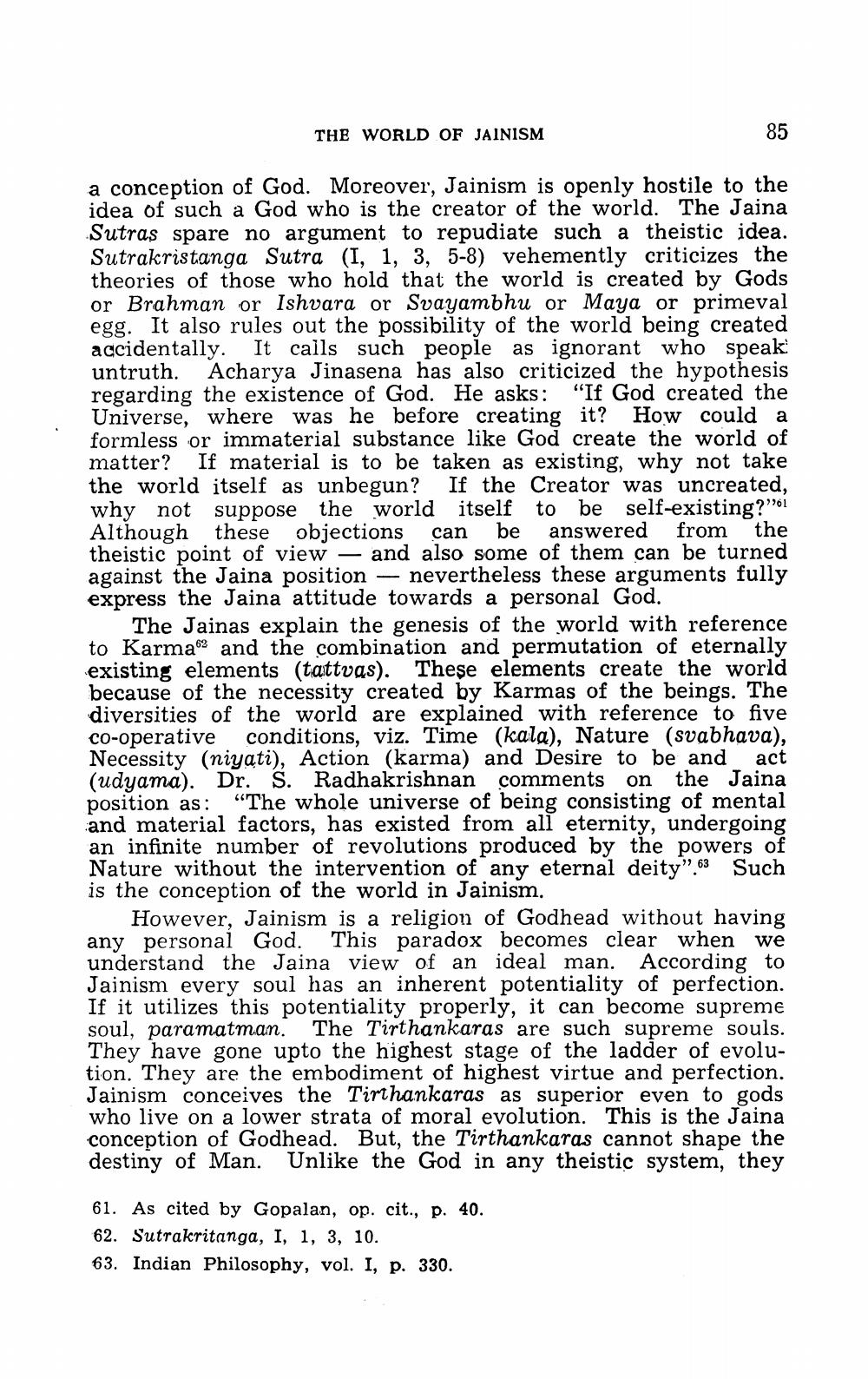________________
THE WORLD OF JAINISM
85
a conception of God. Moreover, Jainism is openly hostile to the idea of such a God who is the creator of the world. The Jaina Sutras spare no argument to repudiate such a theistic idea. Sutrakristanga Sutra (I, 1, 3, 5-8) vehemently criticizes the theories of those who hold that the world is created by Gods or Brahman or Ishvara or Svayambhu or Maya or primeval egg. It also rules out the possibility of the world being created accidentally. It cails such people as ignorant who speak untruth. Acharya Jinasena has also criticized the hypothesis regarding the existence of God. He asks: "If God created the Universe, where was he before creating it? How could a formless or immaterial substance like God create the world of matter? If material is to be taken as existing, why not take the world itself as unbegun? If the Creator was uncreated, why not suppose the world itself to be self-existing?” Although these objections can be answered from the theistic point of view — and also some of them can be turned against the Jaina position - nevertheless these arguments fully express the Jaina attitude towards a personal God.
The Jainas explain the genesis of the world with reference to Karma and the combination and permutation of eternally existing elements (tattvas). These elements create the world because of the necessity created by Karmas of the beings. The diversities of the world are explained with reference to five co-operative conditions, viz. Time (kala), Nature (svabhava), Necessity (niyati), Action (karma) and Desire to be and act (udyama). Dr. S. Radhakrishnan comments on the Jaina position as: “The whole universe of being consisting of mental and material factors, has existed from all eternity, undergoing an infinite number of revolutions produced by the powers of Nature without the intervention of any eternal deity”.63 Such is the conception of the world in Jainism.
However, Jainism is a religion of Godhead without having any personal God. This paradox becomes clear when we understand the Jaina view of an ideal man. According to Jainism every soul has an inherent potentiality of perfection. If it utilizes this potentiality properly, it can become supreme soul, paramatman. The Tirthankaras are such supreme souls. They have gone upto the highest stage of the ladder of evolution. They are the embodiment of highest virtue and perfection. Jainism conceives the Tirthankaras as superior even to gods who live on a lower strata of moral evolution. This is the Jaina conception of Godhead. But, the Tirthankaras cannot shape the destiny of Man. Unlike the God in any theistic system, they
61. As cited by Gopalan, op. cit., p. 40. 62. Sutrakritanga, I, 1, 3, 10. 63. Indian Philosophy, vol. I, p. 330.




